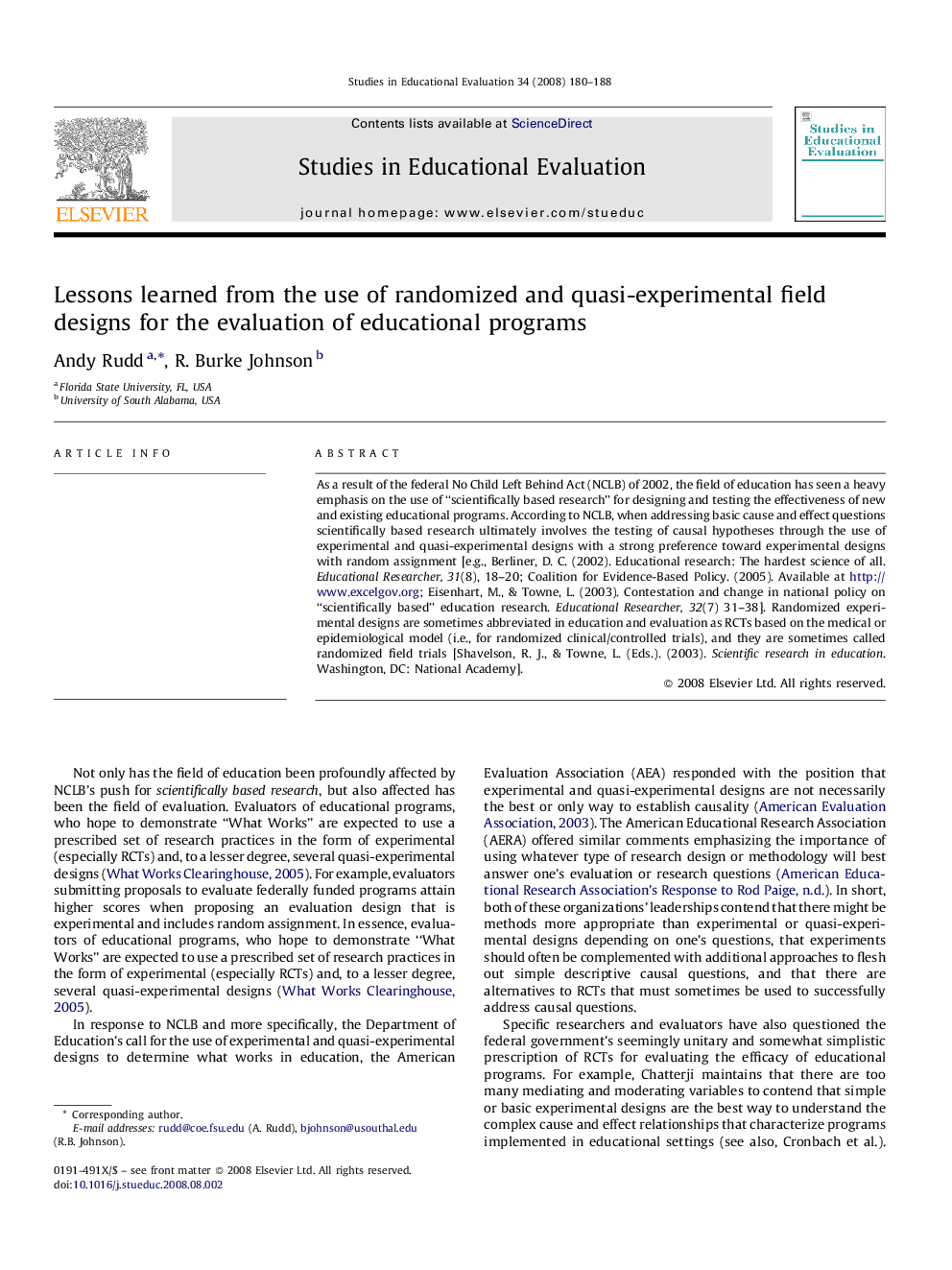| Article ID | Journal | Published Year | Pages | File Type |
|---|---|---|---|---|
| 372794 | Studies in Educational Evaluation | 2008 | 9 Pages |
As a result of the federal No Child Left Behind Act (NCLB) of 2002, the field of education has seen a heavy emphasis on the use of “scientifically based research” for designing and testing the effectiveness of new and existing educational programs. According to NCLB, when addressing basic cause and effect questions scientifically based research ultimately involves the testing of causal hypotheses through the use of experimental and quasi-experimental designs with a strong preference toward experimental designs with random assignment [e.g., Berliner, D. C. (2002). Educational research: The hardest science of all. Educational Researcher, 31(8), 18–20; Coalition for Evidence-Based Policy. (2005). Available at http://www.excelgov.org; Eisenhart, M., & Towne, L. (2003). Contestation and change in national policy on “scientifically based” education research. Educational Researcher, 32(7) 31–38]. Randomized experimental designs are sometimes abbreviated in education and evaluation as RCTs based on the medical or epidemiological model (i.e., for randomized clinical/controlled trials), and they are sometimes called randomized field trials [Shavelson, R. J., & Towne, L. (Eds.). (2003). Scientific research in education. Washington, DC: National Academy].
